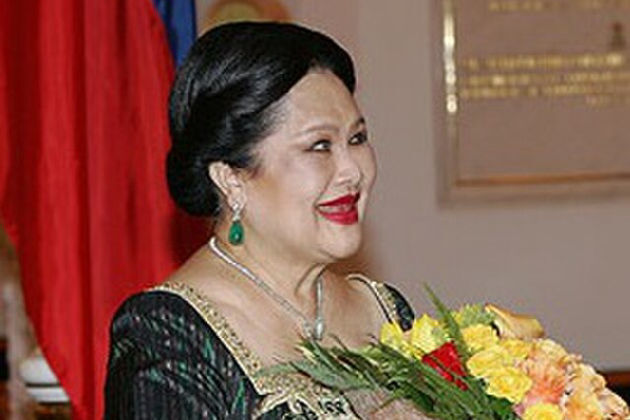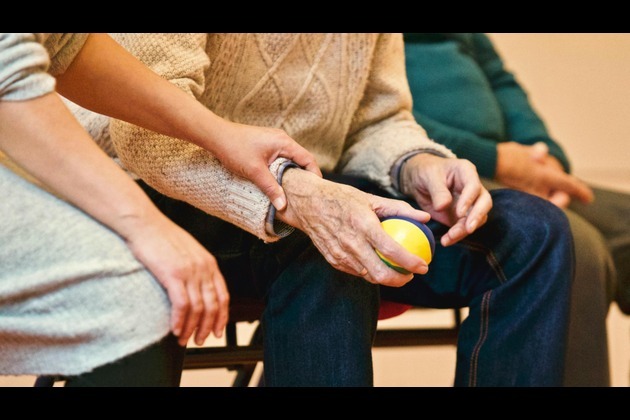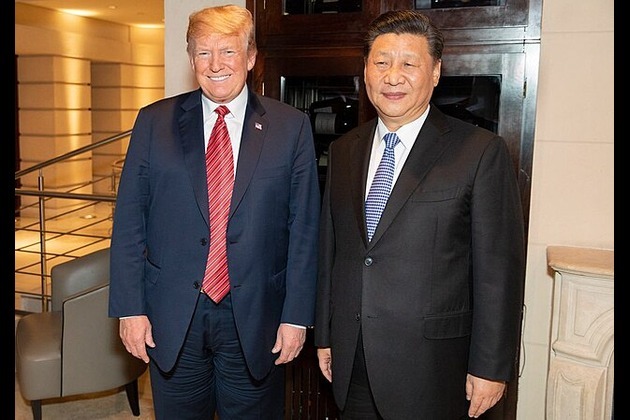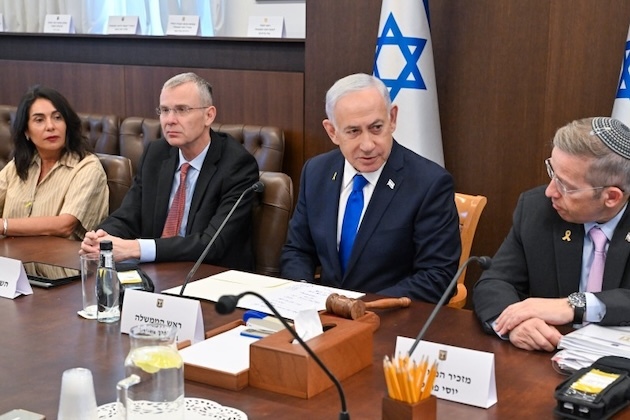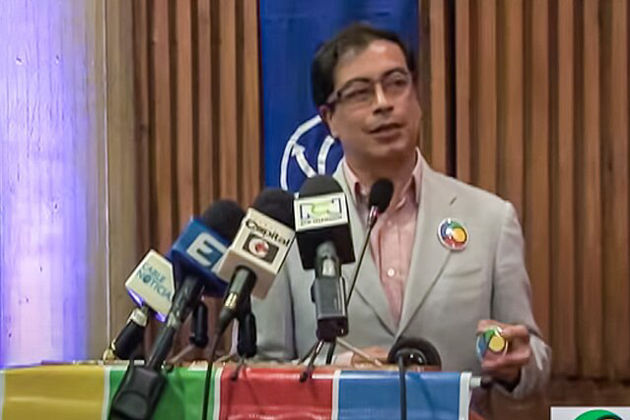Russia Outlines Broader Trade Strategies With Africa
Pressenza
28 Oct 2025, 05:27 GMT+10
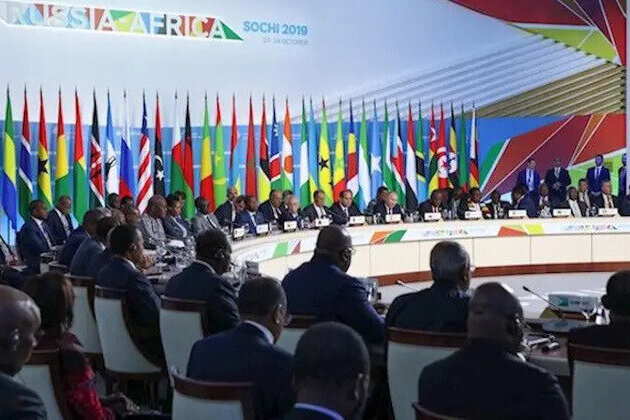
With rising exports estimated at $27 billion and several planned investment projects across the continent, Russia has consolidated its position as a key trading partner and strategic investor for Africa. The relationship between Russia and Africa has ascended beyond political dialogue into strengthening economic parameters, with Russian officials scheduled to sign more agreements at the forthcoming Ministerial Conference in November 2025 and during the third Russia-Africa Summit in 2026.
By traditional agreements, Russia plans to hold Africa tightly in its armpit, as the next strategic step to review its performance with Africa's development and trade transactions, as well as building close multifaceted political relations characterized by high dynamics with the continent, and most often considered to be an integral part of this emerging multipolarity.
Post-Soviet historical records indicate that Russia has undoubtedly had good relations with Africa. The legacy left by the Soviet Union, ranging from practical military-technical, economic, financial, and educational assistance provided to national liberation movements, is simply un-deletable from history books. It has invested in Africa's economy, delivered humanitarian supplies, and trained specialists in the political governance system who are, in principle, managing the continent devoid of neo-colonial domination.
Under the leadership of President Vladimir Putin, Russia has grown stronger, regained its sense of identity, and understood the role it must continue to play in the world, and it began returning to Africa. Further to that, the Kremlin further considers the African Union, the continental organization, as a pillar of the architecture of ensuring sustainable economic development and as an Africa's authoritative voice in the global arena. As such therefore, the first task is to support Africa to completely de-colonize from the shackles of Europe and from the western world. Within a few past years, eight embassies have been restored on the African continent. Russia has held symbolic Summits, in Sochi (October 2019) and in St. Petersburg (July 2023).
It was posted to the official website, the Russian Ministry of Foreign Affairs said there would be much to discuss regarding the economic dimensions of Africa's second awakening and to address the political challenges. The key is to prevent the existing multitude of development and political challenges from escalating, according to an opinion expressed by Sergei Lavrov.
Despite Russia-Africa's achievements, a multitude of complexities and complications still characterized Africa's political governance and economic development. Trends across Africa show a huge distance away from "African problems, African solutions" - an equivalent concept "Africa We Want" propagated by the African Union. The goal is not to remain an appendage of former colonial powers, but rather to build domestic processing industries, where the bulk of value-added are generated. And the stark reality is how to feed (eradicate poverty among) the growing population, estimated at 1.5 billion people, - the overwhelming majority lives in abject poverty despite the huge untapped resources.
At this crucial point, amid the most challenging circumstances, Foreign Minister Lavrov noted: "We now see Africa establishing its own institutions where they convene and discuss topics relating to future development of the continent." Within the bilateral policy framework, Russia stands ready to work with its partners in Africa, build a tangible economic foundation and a pan-continental security architecture. The biggest obstacle is system of financing projects. The African Export-Import Bank has been created, in which Russia participates with special status. Many investment programmes are currently being developed for development and industrialization.
Trade and Economic cooperation has become an irreversible focus for both Russia and Africa, demonstrating as a strong ingredient in enhancing and transforming the current bilateral relations. In his assessment, Sergei Katyrin, head of the Russian Chamber of Commerce and Industry (CCI), told TASS media in October 2025, that Russia and Africa could significantly increase their mutual trade by the end of the decade (by 2030), reaching approximately $50 billion. "Over the past five years, Russia's trade turnover with African countries has grown by more than 60% from $16.8 billion to $27.7 billion. This is an impressive growth rate, and we are confident that by the end of the decade, this figure will reach approximately $50 billion," Katyrin said.
He explained that this growth is primarily due to expanded supplies of food, mineral fertilizers, energy, as well as engineering and chemical products. Currently, areas related to agricultural technology, agricultural processing, logistics, and construction are actively developing. Katyrin also noted that the share of settlements in national currencies is increasing, making trade more resilient to external fluctuations.
"We are seeing growing demand for Russian goods and technologies. The African market requires infrastructure in the areas of subsoil use, digitalization, nuclear and hydropower, and Russia has the experience and expertise to create it. This is the source of further growththe transition to integrated industrial and technological projects," emphasized the head of the Russian Chamber of Commerce and Industry.
According to him, the African continent today is not only the market of the future but also a zone of active economic growth. "Cooperation between our countries is developing confidently, despite external constraints. A special investment mechanism has been launched to support Russian companies operating on the African continent. We highly value the prospects for interaction between African institutions and BRICS, the EAEU, and the SCO. Of the world's 20 fastest-growing economies, 12 are in Africathis is a compelling signal for investors," Katyrin added.
The Russian auto industry could become a growth area for exports to Africa. Russia can offer its African partners not just cars, but comprehensive solutions, including spare parts and repairs, according to Sergei Katyrin, RIA Novosti reported. "The automotive sector could become a growth area for exports and industrial cooperation between Russia and Africa. GAZ is already represented in Morocco through dozens of dealerships, and KAMAZ is negotiating localized production with several African countries," the agency's source noted.
The head of the Chamber added that the development of local assembly will be a priority: such projects reduce logistics costs, create jobs, and offer vehicles adapted to local operating conditions. "Russia is ready to offer not just cars, but comprehensive solutionstrucks, vans, minibuses, and SUVs with a high degree of durability, the ability to be repaired in difficult conditions, and readily available spare parts," Katyrin concluded.
In an objective observation, Senator Igor Morozov, Chairman of the Coordinating Committee for Economic Cooperation with African Countries (AfroCom): For Russia's understanding, Africa is the last relatively free market for the export of domestic goods. In the past few decades, Africa has become the main continent for which an active struggle is unfolding between the Euro-Atlantic region and Greater Eurasia. Therefore, there is nothing surprising in the fact that the European Union is increasing its trade turnover with African countries, and today it amounts to more than $300 billion a year. The United States, implementing the Prosper Africa Program, continues to push American investments and high-tech products to priority African markets. China poses powerful competition to the West in all directions.
At the same time, China, being a leader in financing infrastructure projects, selects seaports, transport arteries, hydropower, and promising deposits of rare earth metals through colossal investments. According to the Agency for International Development and Cooperation, China has built more than 6,000 km of railways, 6,000 km of roads in Africa, nearly 20 ports, and invested in 25 for reconstruction, more than 80 large energy facilities, more than 130 medical facilities, 45 sports facilities, and more than 170 schools. Japan and South Korea are actively moving forward. India, Turkey, Saudi Arabia, and the United Arab Emirates are trying to maintain the Asian pace. In such difficult conditions, Russia's "Return to Africa", which was proclaimed at the Sochi Summit as a planetary slogan for Russia, was received with great enthusiasm by the business community and the ruling business elite. Indeed, with the severe sanctions of the West and the crisis caused by the pandemic and the decline in world trade, it is impossible to grow the national economy without developing new markets.
Most importantly, Russia has entered the world paradigm and is one of the most competitive players. But what does Russia have in Africa today? A little more than 20 companies are working on raw materials projects in different parts of the continent. There are traditional deliveries through the military-technical cooperation, export of grain, mineral fertilizers, oil products, with a total turnover of $27 billion (2025)! This situation says only one thing - it is necessary to involve large-scale involvement of small and medium-sized businesses from the Russian regions in the African direction. It is necessary to reconsider the entire range of the export potential of the regional economy: pharmaceutical technology, the transport industry, agricultural machinery and units, mechanical engineering and navigation equipment, the mining sector, water treatment, and information technology.
However, it should be understood that Africa is rapidly changing, and the rules of work are also changing. Agenda 2063, adopted by the African Union as a program for the development of the continent, requires the localization of foreign manufacturers, job creation, investment in infrastructure projects with a social agenda. And yet, despite the current and potential problems, the African continent is gradually becoming a global project for the West and Eurasia, and the competitive struggle for it is just beginning.
In this regard, in order to promote Russian goods, it is necessary to create conditions that would be competitive for our exporters. It is quite obvious that the Russian Export Center (REC) does not have a direct investment fund in the system of financing African projects. Successful practice in Africa clearly demonstrates the widespread use of such funds by China, India, and France. We need to create new mechanisms for recording concessions for natural resources in investment projects and foreign trade operations, compensatory (counter) trade, mutual settlements in national currencies. We see how Chinese partners use the electronic yuan when paying for their foreign contracts, primarily African ones.
This will require a change in the current legislation, and most importantly, a change in consciousness in the understanding that Africa for Russia is the last relatively free market for the export of domestic goods. Another one or two decades, and it will turn into a highly developed industrial space, where there is no place for those who are lagging.
Therefore, we need to boldly move forward, taking cardinal political and economic decisions, creating free trade zones and a system of agreements to encourage and protect investments, eliminating administrative and trade barriers, using the competitive advantages we inherited from the Soviet Union. It is necessary to launch the Russian Industrial Zone in Egypt in the near future, and this will help Russian exporters quickly localize their production.
Vice President of the Chamber of Commerce and Industry of the Russian Federation, Vladimir Padalko, has described the African market as very promising for Russian companies, especially those intending to localize their production on the continent blessed with several resources. Padalko highlighted priority areas for economic cooperation in a number of spheres. These are energy, infrastructure development, especially railway construction, mining and processing of minerals, agriculture, digital technologies, medicine, science and education.
Nevertheless, the African market is promising for Russia, but at the same time, very difficult and complex with rules and regulations. Russian business needs to work on it thoroughly and systematically in order to achieve success. The localization of Russian production in African countries is already a mature stage of cooperation when companies understand all the specifics of doing business in a particular country and are confident in the long-term nature of project implementation, and the return on their investments.
It was also proposed to work out the issue of establishing a specialized export-import bank and a trust fund to support the export activities of small and medium-sized businesses in African countries. Experience indicates that business in Africa shows great interest, but there is an information vacuum and this obstacle should first be removed. However, the economic model of interaction is now fundamentally different no one will recklessly invest. All work is based on a mutually beneficial basis. There must be a clear understanding of these new economic realities, to adjust strategies for working with foreign partners and to look for new opportunities for their development. This must be based on a mutually beneficial basis. Businesses need to take the initiative and take a certain risk it is like two sides of a coin. There is a wide field of trade and economic collaboration ahead.
Kester Kenn Klomegah
 Share
Share
 Tweet
Tweet
 Share
Share
 Flip
Flip
 Email
Email
Watch latest videos
Subscribe and Follow
Get a daily dose of Milwaukee Sun news through our daily email, its complimentary and keeps you fully up to date with world and business news as well.
News RELEASES
Publish news of your business, community or sports group, personnel appointments, major event and more by submitting a news release to Milwaukee Sun.
More InformationInternational
SectionBeloved Thai Queen Mother Sirikit passes away at 93
BANGKOK, Thailand: Thailand's Queen Mother Sirikit, known for her decades of work to help the poor, protect the environment, and preserve...
US deploys Gerald R. Ford carrier to Caribbean amid Venezuela tensions
WASHINGTON, D.C.: President Donald Trump's administration stepped up the U.S. military presence in the Caribbean this week by announcing...
Seniors to get average $56 monthly boost as COLA rises 2.8%
WASHINGTON, D.C.: Nearly 71 million Americans receiving Social Security benefits will see their payments rise by 2.8 percent in 2026,...
Trade talks in Malaysia aim to salvage Trump–Xi meeting
KUALA LUMPUR: Senior U.S. and Chinese officials began talks in Kuala Lumpur aimed at preventing their trade dispute from spiraling...
Israel and U.S. changing face of Middle East forever, says Netanyahu
JERUSALEM - Israel will decide which international forces are chosen to monitor the Gaza ceasefire, and the United States agrees to...
Loss of US military help would hit Colombia hardest, Petro says
BOGOTA, Colombia: Colombian President Gustavo Petro said this week that a suspension of U.S. aid would not significantly affect his...
Wisconsin
SectionIsrael and U.S. changing face of Middle East forever, says Netanyahu
JERUSALEM - Israel will decide which international forces are chosen to monitor the Gaza ceasefire, and the United States agrees to...
Reports: Steelers to sign WR Marquez Valdes-Scantling
(Photo credit: Matthew Hinton-Imagn Images) The Pittsburgh Steelers are set to sign wide receiver Marquez Valdes-Scantling, a former...
Knicks visit Giannis Antetokounmpo, Bucks in battle of East contenders
(Photo credit: Ken Blaze-Imagn Images) Giannis Antetokounmpo and the New York Knicks spent much of the offseason being linked together...
No. 17 Illinois determined to debut 'Balkan Five' vs. Jackson State
(Photo credit: Jovanny Hernandez / Milwaukee Journal Sentinel / USA TODAY NETWORK via Imagn Images) The Associated Press Top 25 preseason...
Who wants the AFC North? Third-place Ravens (2-5) are new favorite
(Photo credit: Tommy Gilligan-Imagn Images) The new favorite to win the AFC North through eight weeks of the season bears a striking...
Pistons to test their 'standard' against Cavaliers
(Photo credit: Rick Osentoski-Imagn Images) Detroit's home game against Cleveland on Monday night will provide an early measuring...

